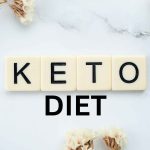Welcome to Healthy Diet Balance (https://healthydietbalance.com), your worldwide resource for achieving a vibrant, balanced life through nutrition.
This complete guide is made to assist you in feeding your body and boosting your energy, and maintaining an ideal weight. We’ll look at the meaning of healthy diet balance is the reasons it’s so important in all cultures and the ways you can develop a customized program that fits your needs.
What Is a Healthy Diet Balance?
In essence, a healthy diet balance involves eating a wide range of food items in the proper proportions to provide your body with the nutritional requirements and promote overall well-being.
It’s not about strict food choices or trends that are not sustainable, it’s about the right balance that is tailored to your specific needs.
This philosophy is in line with the global standards of health from the World Health Organization (WHO) and is able to adapt to lifestyle preferences across the globe that range that range from Mediterranean foods to Asian rice-based dishes.
Why It Matters Globally
A healthy diet can help to prevent chronic diseases such as heart disease and diabetes that affect millions of people across the world.
The WHO says that poor nutrition causes to the deaths of 11 million people each year around the world, including 1.7 million due to inadequate consumption of fruits and vegetables.
A balanced healthy diet improves blood sugar stability helps digestion, and increases mental clarity. These benefits are supported by research conducted by institutions such as the National Institutes of Health (NIH) as well as international nutrition authorities.
A Global Perspective
From the quinoa in South America to sushi in Japan and the roti in India, The balance of a healthy diet differs by region.
This guide reflects this diversity, offering tips for international readers while maximizing the phrase “healthy diet balance” to attract a global public.
The Science Behind a Balanced Diet
The knowledge you gain from the research allows the user to make informed decisions, no wherever you are.
A healthy diet balance is built on the balance of energy- calories consumed versus calories expended, weighed against the density of nutrients.

Macronutrients are the Building Blocks
- Carbohydrates The primary energy source. Choose complex carbs, such as whole grain (brown rice, oatmeal as well as whole wheat pasta) instead of refined choices (white bread or sweet cereals).
- Proteins Essential for the repair of muscles and for boosting immunity. Include chicken, lentils, tofu or fish in accordance with your cultural preferences.
- fats Avocados are healthy fats. They or olive oil, nuts, or coconut are beneficial for the brain’s health. Beware of Trans fats in processed foods.
Micronutrients The Unsung Heroes
- Vitamins Vitamin D (from sunlight or fortified food sources) along with B12 (from eggs, meat or vegetarian supplements) are essential globally.
- Minerals Iron (from spinach or red meat) and calcium (from dairy products or leafy greens) tackle deficiencies that are widespread.
Caloric Needs for healthy diet
Caloric intake differs by gender, age, and level of activity. The WHO recommends 2000-2500 kcal/day for adults, adjusting for the lifestyle.
For a person who is sedentary, they could prefer 1800 kcal and an active person might require 2800 calories.
Make use of tools such as MyFitnessPal as well as Cronometer to estimate your needs and are and available in several languages for users who are international.
Benefits of a Healthy Diet Balance
A healthy diet balance changes lives all over the world. Here’s how, supported by research:
- Weight Management An study in the American Journal of Clinical Nutrition found that balanced diets lower the risk of obesity by 25% when compared to eating in a non-balanced way.
- Prevention of Disease: The NIH reports that diets high in vegetables and fruits lower risk of developing heart disease by 20 percent, which is a positive effect observed in all regions of the U.S., Europe, and even beyond.
- Mental Health Flaxseeds and fish contain omega-3 compounds that can improve mood, according to a 2023 European Journal of Nutrition study.
- energy boost: Balanced meals prevent energy loss, keeping your energy levels high whether in Tokyo or Toronto.
How to Achieve Healthy Diet Balance: A Global Step-by-Step Guide
Let’s make it practical for all. Here’s a guideline to create your balanced diet plan that is adaptable to any nation.
Step 1: Determine Your Needs
Healthy Goals Gaining weight muscle growth or general health? Talk to your local dietitian or online tools to receive personalized advice.
age and activity A teenager requires more protein to grow and a mature adult may focus on the health of their bones.
Step 2: Create Your Plate
Follow the World Health Organization’s global food guidelines:
- 50% vegetables and fruits: Broccoli, berries or tropical fruit.
- 25 Whole Grains – 25 : Quinoa, barley or rice.
- 15 Protein : Beans, turkey or fish.
- 10 10% Fats: A drizzle of olive oil or some walnuts.
Step 3: Plan Your Meals
- Breakfast: Greek yogurt with honey and nuts (300 kcal).
- Lunch: Grilled chicken, Quinoa, and steamed vegetables (650 Kcal).
- Meal: Salmon with brown rice and salad (500 kcal).
- snacks: Fruit or hummus with carrots (100-200 kcal).
Step 4: Be Consistent
- Eat 3-4 times a day to ensure that you are energized.
- Drink a enough water per day for hydration, adjusting to the conditions (e.g. More in hot zones).

A Sample 7-Day Healthy Diet Balance Plan for Readers from around the world
Here is a week-long plan using diverse, accessible ingredients. Calorie amounts are approximate and are subject to change.
Day 1
- Breakfast: Oatmeal with berries (350 kcal)
- Lunch: Grilled fish, the couscous and spinach (650 kcal)
- Food: Lentil soup with whole-grain bread (500 kcal)
- Snack: Banana (90 kcal)
Day 2
- Breakfast: Scrambled eggs with avocado (300 kcal)
- Lunch: Turkey wrap with Hummus and vegetables (600 kcal)
- dinner: Stir-fried tofu with brown rice (450 kcal)
- Snack: Almonds (120 kcal)
Days 3-7
(Vary to local staples and keep portions well-balanced.) Talk to a nutritionist about an individualized plan.
Common Myths About Healthy Diet Balance
Let’s tackle myths with facts to inform readers across the globe.
- Myth 1. Carbs are the enemy
- Truth: Complex carbs (e.g., sweet potatoes, acai) are vital. The NIH denies the low-carb fads that are affecting long-term health.
- Myth 2: You’ll Need Supplements
- Fact: A varied diet often suffices. In excess, it can result in problems, as per WHO.
- Myth 3 The Truth About The Truth is that All Fats Are Bad
- The truth: Healthy fats (e.g. olives, from olives) aid in the production of hormones and improve skin.
Tips to maintain a healthy diet balance Long-Term
Sustainability is all-encompassing. Here’s how to keep it in mind:
- Meal Preparation: Cook in bulk (e.g. soups that last for two for a week) to save time.
- Mindful eating: Eat slowly to be aware of fullness, a method which is embraced worldwide.
- Do not eat processed foods: Swap chips for homemade energy bars.
- Track progress: Use a journal or an app similar to MyFitnessPal.
Expert Perspective
Doctor Maria Gonzalez, a nutritionist with over 12 years of experience working in Spain She advises “Incorporate seasonal fruits and vegetables, such as fruit in the summer and root vegetables in winter to get the most nutrition.”
Technology and healthy diet balance
The year 2025 will be the time when technology is expected to improve nutrition worldwide. AI-powered applications such as Lifesum or MyFitnessPal examine diets, whereas wearables track your activity.
Users from all over the world can use these apps in their own languages, offering meal plans from Italian pasta to Indian curries.
Make use of these tools to ensure a an appropriate diet However, you should make sure to consult a doctor for exactness.
FAQs About Healthy Diet Balance
- Q: Can I follow this on a budget?
- A: Yes! Use beans, seasonal produce, and home-cooked meals.
- Q: Is this suitable for vegetarians?
- A: Absolutely—swap meat with tofu or legumes.
- Q: How often should I adjust my plan?
- A: Review every 3 months or after lifestyle changes.
Conclusion: Embrace Your Healthy Diet Balance Journey Worldwide
A healthy diet balance is your passport to vitality, adaptable across cultures and continents. At Healthy Diet Balance (https://healthydietbalance.com), we’re dedicated to guiding you with expert advice, global perspectives, and engaging content.
Start today with our 7-day plan, share your story, and let’s build a healthier world together. Visit us for more tips-https://healthydietbalance.com/






